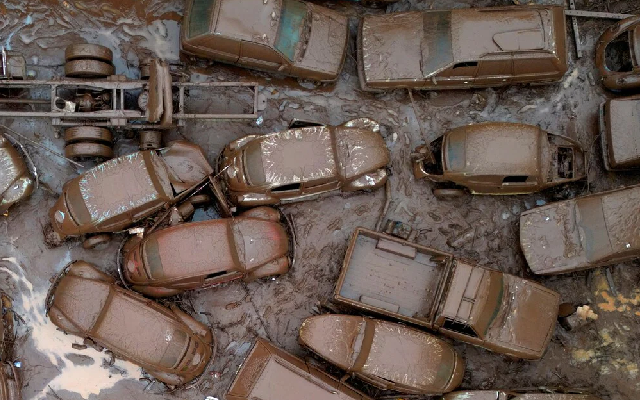Porto Alegre: Severe flooding, mudslides, and relentless storms have displaced nearly 70,000 individuals from their residences in southern Brazil, with Porto Alegre bearing the brunt of the devastation, according to the nation’s civil defense agency’s statement on Saturday.
Reports indicate that 57 people have lost their lives, with 74 injured and 67 others still unaccounted for due to the raging floodwaters.
Tragically, two individuals lost their lives in a gas station explosion in Porto Alegre, amidst rescue efforts witnessed by an AFP journalist.
The situation in Rio Grande do Sul has reached a critical point as rapidly rising water levels threaten dams and the densely populated city of Porto Alegre, home to 1.4 million residents.
The Guaiba River, coursing through the city, has surged to a historic height of 5.04 meters, surpassing the previous record set during the devastating floods of 1941.
Efforts are underway to evacuate inundated neighborhoods, with over 69,000 people displaced and more than a million facing water scarcity.
Governor Eduardo Leite emphasized the need for substantial investment akin to a “Marshall Plan” to rebuild the state following the catastrophe.
Transportation services have been disrupted, with bus services halted and flights suspended at Porto Alegre International Airport.
President Luiz Inacio Lula da Silva shared a video depicting dramatic rescue operations, highlighting the perilous conditions faced by residents.
The gravity of the situation was underscored by local officials urging communities to evacuate, as water levels continue to rise and vital infrastructure is compromised.
Rescue efforts are hindered by widespread inundation, with numerous municipalities affected by the storms.
Shelters have been set up to accommodate the displaced population, providing refuge for those who have lost everything in the disaster.
The calamity in southern Brazil is attributed to a combination of climate change and the El Nino weather phenomenon, exacerbating the region’s vulnerability to extreme weather events.
This recent catastrophe adds to a series of extreme weather occurrences experienced by Brazil, signaling the urgent need for climate resilience measures.
Read More:




